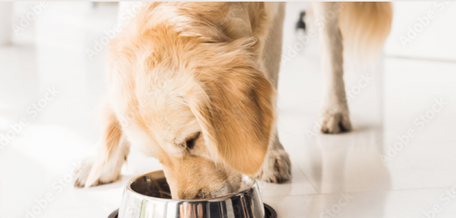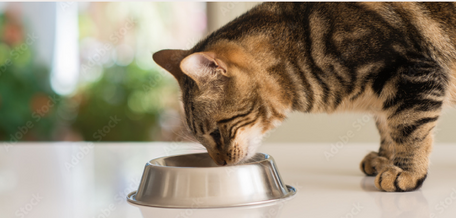
As a dog owner, you always look out for your furry companion’s well-being. Part of that responsibility involves knowing which foods could harm them. While some items on this list might not surprise you, others might give you pause for thought.
So, let's dive into the details of these potentially dangerous foods and why they're off-limits for your canine companion.
Remember, this guide isn't meant to replace professional advice. If you suspect your dog has eaten something toxic, contact your veterinarian immediately. Prevention is key, but quick action can make all the difference in an emergency.
Common Harmful Foods: The Usual Suspects
While many human foods are safe for dogs, some everyday household items can be surprisingly dangerous. Let's explore these familiar culprits that every dog owner should be aware of and keep out of reach.
Chocolate: Not So Sweet for Dogs
Chocolate might be a treat for humans, but it's a potential dog poison. The culprit? Theobromine, a compound found in cocoa. Your dog's body processes theobromine much slower than yours, leading to a toxic build-up. According to research, around 50% of dogs die after ingesting 100 to 200 mg (per kilo of dog weight) of theobromine.
To give you some idea of how much chocolate that is, milk chocolate contains approximately 150-200 milligrams of theobromine per 100 grams (3.5 oz.). Meanwhile, dark chocolate is incredibly toxic to dogs, containing up to 1,000 milligrams of theobromine per 100 grams. White chocolate has a negligible amount, so it is less dangerous.
Symptoms of chocolate poisoning can range from vomiting and diarrhea to more severe issues like seizures and heart problems. If you notice any of these symptoms, head straight to your veterinary practice.
Grapes and Raisins: Tiny Fruits, Big Problems
It might seem odd that such small fruits can cause such big issues, but grapes and raisins are seriously toxic to dogs. Even a tiny amount can lead to sudden kidney failure in some dogs, though the exact substance causing the toxicity remains a mystery to scientists.
Watch out for symptoms like vomiting, lethargy, and decreased urine output. If your dog has a habit of hoovering up fallen food, be extra careful with these fruits around the house. It's best to keep grapes and raisins stored somewhere completely secure and consumed when not in the same room to be sure. And don’t forget that many cakes and sweet treats contain raisins!
Onions and Garlic: Flavor for You, Danger for Them
These aromatic vegetables might add depth to your dishes, but they spell trouble for your dog. Onions, garlic, leeks, and chives all belong to the Allium family, and they all contain compounds that can damage your dog's red blood cells, potentially leading to anemia.
Cooking doesn't eliminate the danger, so keep your dog away from these ingredients in all forms – raw, cooked, or powdered. Signs of poisoning might not show up for several days, so if you suspect your dog has eaten these, keep a close eye on them and consult your vet. Symptoms to look out for include decreased appetite, vomiting, diarrhea, depression, abdominal pain, and drooling.
Lesser-Known Harmful Foods: Hidden Dangers
Ok, so we’ve covered the usual suspects. Now, let’s take a look at some of the less obvious dangers that can be just as harmful to your dog.
Avocado: Not the Superfood for Your Super Pup
Avocados have gained popularity as a healthy food for humans, but they're unsuitable for your dog. These creamy fruits contain persin, a fungicidal toxin that can cause vomiting and diarrhea in dogs. However, despite the well-documented problems with dogs ingesting persin, more recent scientific studies have pointed to the potential for dogs to eat avocado and use it as a novel source of fiber.
More research is needed to give a definitive answer. But for now, it's probably best to keep avocados off your dog's menu and avoid sharing your guacamole with your furry friend.
Macadamia Nuts: A Nutty No-No
These rich, buttery nuts might be a delicacy for humans, but they're downright dangerous for dogs. Even a small amount (around six nuts) can cause weakness, depression, vomiting, and hyperthermia in dogs.
The exact substance that causes this reaction isn't known, but the effects are clear. If you're a fan of these nuts, keep them stored safely away from your curious canine.
Xylitol: The Hidden Sugar Substitute Menace
Xylitol, a sugar substitute found in many sugar-free products, is extremely toxic to dogs. It causes a rapid release of insulin in dogs, leading to a dangerous drop in blood sugar. In severe cases, it can cause liver failure.
Check the ingredients of sugar-free gum, candies, and even some peanut butter brands. If they contain xylitol, keep them far away from your dog. Be particularly vigilant with visitors who might not know about this danger – a dropped piece of sugar-free gum could spell disaster for your pup.
Raw Food Safety: Navigating the Natural Diet
While a raw diet can offer numerous benefits for your dog, it's crucial to approach it with care and knowledge. Raw meats can harbor bacteria that might not affect your dog but could pose a risk to human family members. Always handle raw pet food with the same precautions you'd use for your own raw meat.
If you’re cooking some of your own raw meals along with our treats and delicious raw complete meals for dogs, then it’s also wise to exercise caution with numerous ingredients you might have initially considered safe.
For instance, raw fish may contain parasites and dangerously sharp bones, and raw eggs carry a risk of salmonella. If you're considering a raw diet for your dog, consult with a veterinarian to ensure you're providing a balanced and, most importantly, safe meal plan.
Keep Your Pup Safe by Knowing What Raw Foods to Avoid
Understanding what not to feed your dog is just the first step in providing optimal nutrition. Every dog is unique, with individual dietary needs based on factors like age, size, and activity level.
Consulting with a veterinarian can help you tailor a diet that keeps your furry friend healthy and happy while also making yourself aware of any foods to explicitly avoid. Again, to reiterate, the above list is neither professional advice nor does it remotely cover all of the foods that can cause toxicosis in dogs.
If you're interested in exploring raw feeding, consider starting with a trusted provider like ourselves here at BJ's Raw Pet Food. With professional guidance and high-quality ingredients sourced from leading farms in the rolling hills of Pennsylvania, you can confidently transition your dog to a raw diet that may improve their overall health and vitality.
Remember, your dog's diet is a critical factor in their wellbeing. By staying informed and making thoughtful choices, you're giving your furry friend their best shot at a long, healthy life by your side. After all, isn't that what being a pet parent is all about?




















